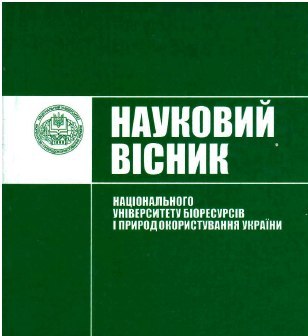Models Of National History In Novels Of German Female Authors 1990 2000
DOI:
https://doi.org/10.31548/philolog0(263).2017.0141%20-%20149Abstract
The article deals with the difficult correlation between memory and history. Over the last 20 years these concepts have become the most important issues for literary studies and, first of all, German studies. The reason is the contemporary German novel, which includes novels of female writers and represents two main national discourses of reunification and coming to terms with the past. The German И?literature of the turn’ (И?Wende-Literatur’) contains artistic versions of national past focusing on national socialism, socialism and reunification. The construction of alternative versions of national past in the female novelistic prose is particularly representative. The novels of H. Müller, M. Maron and J. Erpenbeck illustrate the traumatic authentic experience of the women from Eastern Bloc (Romania and GDR) and depict not only difficulties of the female being and self-understanding, but also official history of Germany as alternative models of the past according to the categories of time and gender in the correlation memory / history.
The purpose of the article is to analyze and to characterize literary models of German past in the female narration.
Due to the results of narrative analysis of the texts under consideration and analysis based on the methods of cultural and gender studies two subversive models of national history were defined. They are not isolated, but reflect each other. The female narration represents the family model as well as the model of narrative female body. The Romanian and German past takes a form of family chronic, violence against woman, age difficulties, illness and even sexual contact. The gendering of these flashbacks to the German past allows to specify such peculiar features of mentioned narrative models as emancipation, privacy, feminity, subversiveness and catastrophic determinacy. Consequently the female prose develops the multiple versions of the past in the double-voice discourse, where the female destiny reflects and deconstructs the official point of view on the national past.
The article draws upon a small part of contemporary German literature giving and tracing new perspectives of narrative turn, cultural and gender studies discovering a text as a construct.
References
Assmann, A. (1999). Erinnerungsräume : Formen und Wandlungen des kulturellen Gedächtnisses [The Past in the Present: Dimensions and Dynamics of Cultural Memory]. Beck, 426.
Bronfen, E. (1999). Die Sprache der Hysterie : Eine hermeneutische Herausforderung [The Language of Hysterie : a Hermeneutik Challenge]. Böhlau Verlag. 149 172.
Erpenbeck, J. (1999). Geschichte vom alten Kind [The Old Child]. Eichborn, 106.
Fuchs, A. (2007). From ''Vergangenheitsbewältigung'' to Generational Memory Contests in Günter Grass, Monika Maron and Uwe Timm. Blackwell Publishers, 169 185.
Grub, F. T. (2003). “Wende” und “Einheit” im Spiegel der deutschsprachigen Literatur [“Wende” and “Einheit” in the Mirror of the German Literature]. Walter de Gruyter, 349.
Maron, M. (1996). Animal triste. Fischer Verlag, 238.
Marven, L. (2005). Body and Narrative in Contemporary Literatures in German : Herta Müller, Libuše Moníková, Kerstin Hensel. Oxford University Press, 282.
Müller, H. (1999). Heute wär ich mir lieber nicht begegnet [Today I Would Rather Not Have Encountered Myself]. Rowohlt Taschenbuch Verlag, 239.
Müller, H. (1995). Hunger und Seide. Essays [Hunger and Silk. Essays]. Rowohlt Verlag, 172.
Nünning, A. (1995). Von historischer Fiktion zu historischen Metafiktion [Of Hitorical Fiction to Historical Metafiction].WVT, 373.
Weigel, S. (1999). Télescopage im Unbewußten. Zum Verhältnis von Trauma, Geschichtsbegriff und Literatur [Télescopage in Unconsciousness. Toward the Trauma, Concept of History and Literature]. Böhlau Verlag, 51 76.
Downloads
Published
Issue
Section
License
Relationship between right holders and users shall be governed by the terms of the license Creative Commons Attribution – non-commercial – Distribution On Same Conditions 4.0 international (CC BY-NC-SA 4.0):https://creativecommons.org/licenses/by-nc-sa/4.0/deed.uk
Authors who publish with this journal agree to the following terms:
- Authors retain copyright and grant the journal right of first publication with the work simultaneously licensed under a Creative Commons Attribution License that allows others to share the work with an acknowledgement of the work's authorship and initial publication in this journal.
- Authors are able to enter into separate, additional contractual arrangements for the non-exclusive distribution of the journal's published version of the work (e.g., post it to an institutional repository or publish it in a book), with an acknowledgement of its initial publication in this journal.
- Authors are permitted and encouraged to post their work online (e.g., in institutional repositories or on their website) prior to and during the submission process, as it can lead to productive exchanges, as well as earlier and greater citation of published work (See The Effect of Open Access).

